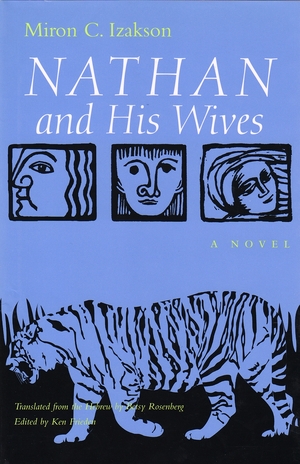Description
Meir, the narrator of the story, is the personal servant of Nathan, a rich tycoon consumed with bizarre obsessions. The deep connection between Meir and Nathan takes its toll on the relationships each man has with the women in his life: Rina, Nathan’s first wife; Rachel, Meir’s wife; and Dana, Meir’s lover.
Wealth makes Nathan powerful, shameless, able to satisfy his every whim—buying up priceless art and antiques, collecting women, founding a political party, purchasing an entire village in Galilee, or assembling his own team of “experts” from all over the world, among them a chess master. Why? Because he can. Wealth fuels Nathan’s control over those around him, particularly the faithful Meir.
While exploring the complicated personalities of his characters, Izakson neatly combines surreal and real elements to deal with questions of Jewish culture and beliefs. Nathan’s obsession with collecting is driven by his desire to obtain a fourteenth-century manuscript written by the King of France when he was in exile in England. This record sheds light on issues about royalty and regime, exile and national identity. Meir’s assistance in this pursuit is at first innocent and touching, but soon turns morbid and ironic.
The power struggles in this book speak to issues of human weakness and reveal connections between attraction and rejection, dependency and exploitation. Izakson explores the intricacies of human relationships and the instability of moral and geographic boundaries in contemporary society.
About the Author
Miron C. lzakson is a well-known writer and poet in his native Israel, where he has published two novels and seven books of poetry. Nathan and His Wives was previously published in Hebrew and French.
Betsy Rosenberg has also translated works by Aharon Appelfeld, David Grossman, and Yehoshua Kenaz.
May 2003



